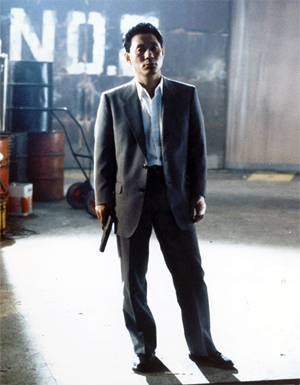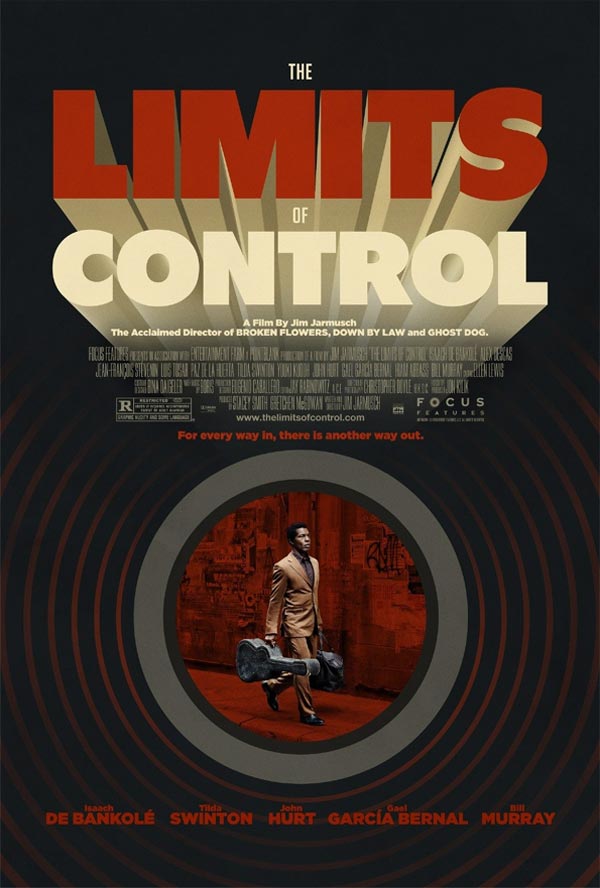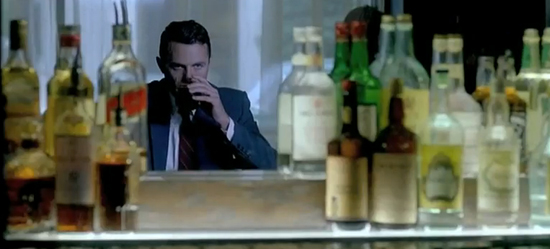 Starring: Adrien Brody, Alice Braga, Topher Grace, Laurence Fishburne, Walton Goggins
Starring: Adrien Brody, Alice Braga, Topher Grace, Laurence Fishburne, Walton GogginsScreenplay: Alex Litvak, Michael Finch, based on a script by Robert Rodriguez
Director: Nimród Antal
A group of killers, including soldiers, mercenaries, and criminals, are dropped into a jungle. They quickly realise that they are being hunted, and they are no longer on Earth.
Unlike the Alien movies, the Predator films have never been big on scares. At their best, they're tense chase films, or big fun stupid action movies. This latest effort, guided through production by avowed fanboy Robert Rodriguez, attempts to combine the two, with a clear intention to summon the spirit of the first film. It's not entirely successful, but it's entertaining enough.
 We start by being introduced to the team of killers. Brody's performance as de-facto leader Royce is surprisingly solid, despite the Christian Bale voice, while Alice Braga gives good support as the more empathetic sniper. The rest of the cast are rounded out by the usual stereotypes: Giant Russian, silent Yakuza, odd-man-out (Grace), and Danny Trejo. Most fun, however, is Walton Goggins (The Shield, Justified) as depraved death-row inmate Stans, who gets all the best lines. Fishburne also seems to be having a great time in an extended cameo as "The one you don't fuck with."
We start by being introduced to the team of killers. Brody's performance as de-facto leader Royce is surprisingly solid, despite the Christian Bale voice, while Alice Braga gives good support as the more empathetic sniper. The rest of the cast are rounded out by the usual stereotypes: Giant Russian, silent Yakuza, odd-man-out (Grace), and Danny Trejo. Most fun, however, is Walton Goggins (The Shield, Justified) as depraved death-row inmate Stans, who gets all the best lines. Fishburne also seems to be having a great time in an extended cameo as "The one you don't fuck with."
 Made for a relatively modest $40 million, it's competently directed by Nimród Antal, who beat directors like Michael J. Bassett (Wilderness, Solomon Kane) and Neil Marshall to the gig. It would have been great to see what Marshall would have done with this, but never mind, eh? There's some decent chase sequences, the Predator designs are updated with varying degrees of success (do we really need new masks?), and the Predator-vision brings a warm fuzzy feeling to those of us who are fans.
Made for a relatively modest $40 million, it's competently directed by Nimród Antal, who beat directors like Michael J. Bassett (Wilderness, Solomon Kane) and Neil Marshall to the gig. It would have been great to see what Marshall would have done with this, but never mind, eh? There's some decent chase sequences, the Predator designs are updated with varying degrees of success (do we really need new masks?), and the Predator-vision brings a warm fuzzy feeling to those of us who are fans.
However, there's never really any sense of surprise. It's pretty easy to spot which of Royce's band of rogues is next to go, and once we get over the fun of the premise, with our anti-heroes stranded on an alien planet, the structure is basically identical to the first movie. While Predator 2 was undoubtedly flawed, it did at least shake things up by bringing the monster to Los Angeles. Certain plot-points are mishandled, specifically one character twist that is revealed far too late in proceedings to make any impact.
 Predators is far superior to the Alien vs. Predator movies, which is damning it with faint praise, but it's also a decent sci-fi action film that does restore a little dignity to the franchise. It's no masterpiece, and it doesn't hold a candle to the first movie, but it's a fun ride.
Predators is far superior to the Alien vs. Predator movies, which is damning it with faint praise, but it's also a decent sci-fi action film that does restore a little dignity to the franchise. It's no masterpiece, and it doesn't hold a candle to the first movie, but it's a fun ride.
6.5/10
Unlike the Alien movies, the Predator films have never been big on scares. At their best, they're tense chase films, or big fun stupid action movies. This latest effort, guided through production by avowed fanboy Robert Rodriguez, attempts to combine the two, with a clear intention to summon the spirit of the first film. It's not entirely successful, but it's entertaining enough.
 We start by being introduced to the team of killers. Brody's performance as de-facto leader Royce is surprisingly solid, despite the Christian Bale voice, while Alice Braga gives good support as the more empathetic sniper. The rest of the cast are rounded out by the usual stereotypes: Giant Russian, silent Yakuza, odd-man-out (Grace), and Danny Trejo. Most fun, however, is Walton Goggins (The Shield, Justified) as depraved death-row inmate Stans, who gets all the best lines. Fishburne also seems to be having a great time in an extended cameo as "The one you don't fuck with."
We start by being introduced to the team of killers. Brody's performance as de-facto leader Royce is surprisingly solid, despite the Christian Bale voice, while Alice Braga gives good support as the more empathetic sniper. The rest of the cast are rounded out by the usual stereotypes: Giant Russian, silent Yakuza, odd-man-out (Grace), and Danny Trejo. Most fun, however, is Walton Goggins (The Shield, Justified) as depraved death-row inmate Stans, who gets all the best lines. Fishburne also seems to be having a great time in an extended cameo as "The one you don't fuck with." Made for a relatively modest $40 million, it's competently directed by Nimród Antal, who beat directors like Michael J. Bassett (Wilderness, Solomon Kane) and Neil Marshall to the gig. It would have been great to see what Marshall would have done with this, but never mind, eh? There's some decent chase sequences, the Predator designs are updated with varying degrees of success (do we really need new masks?), and the Predator-vision brings a warm fuzzy feeling to those of us who are fans.
Made for a relatively modest $40 million, it's competently directed by Nimród Antal, who beat directors like Michael J. Bassett (Wilderness, Solomon Kane) and Neil Marshall to the gig. It would have been great to see what Marshall would have done with this, but never mind, eh? There's some decent chase sequences, the Predator designs are updated with varying degrees of success (do we really need new masks?), and the Predator-vision brings a warm fuzzy feeling to those of us who are fans.However, there's never really any sense of surprise. It's pretty easy to spot which of Royce's band of rogues is next to go, and once we get over the fun of the premise, with our anti-heroes stranded on an alien planet, the structure is basically identical to the first movie. While Predator 2 was undoubtedly flawed, it did at least shake things up by bringing the monster to Los Angeles. Certain plot-points are mishandled, specifically one character twist that is revealed far too late in proceedings to make any impact.
 Predators is far superior to the Alien vs. Predator movies, which is damning it with faint praise, but it's also a decent sci-fi action film that does restore a little dignity to the franchise. It's no masterpiece, and it doesn't hold a candle to the first movie, but it's a fun ride.
Predators is far superior to the Alien vs. Predator movies, which is damning it with faint praise, but it's also a decent sci-fi action film that does restore a little dignity to the franchise. It's no masterpiece, and it doesn't hold a candle to the first movie, but it's a fun ride.6.5/10


(080410181021)Perdona_e_dimentica_3.jpg)
























